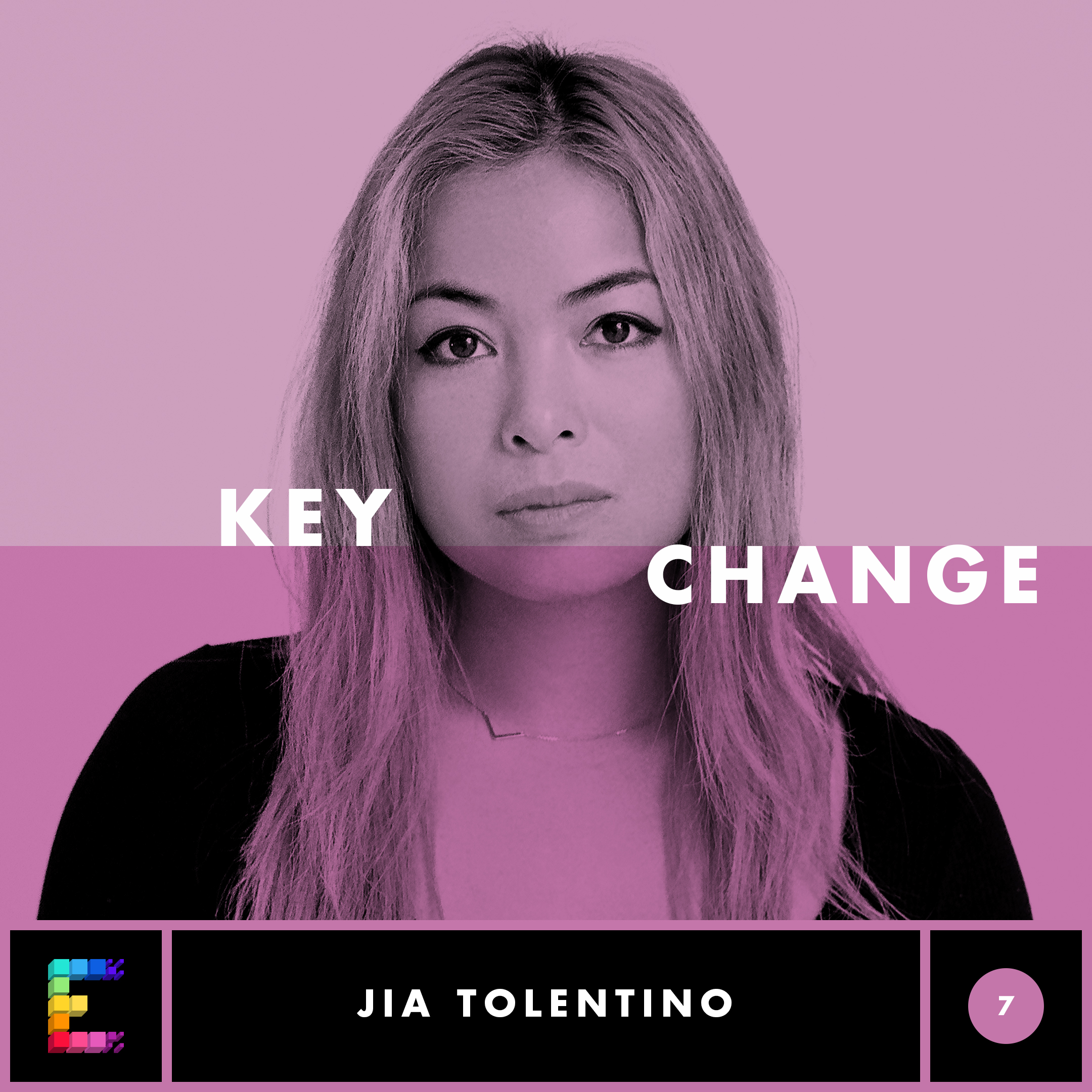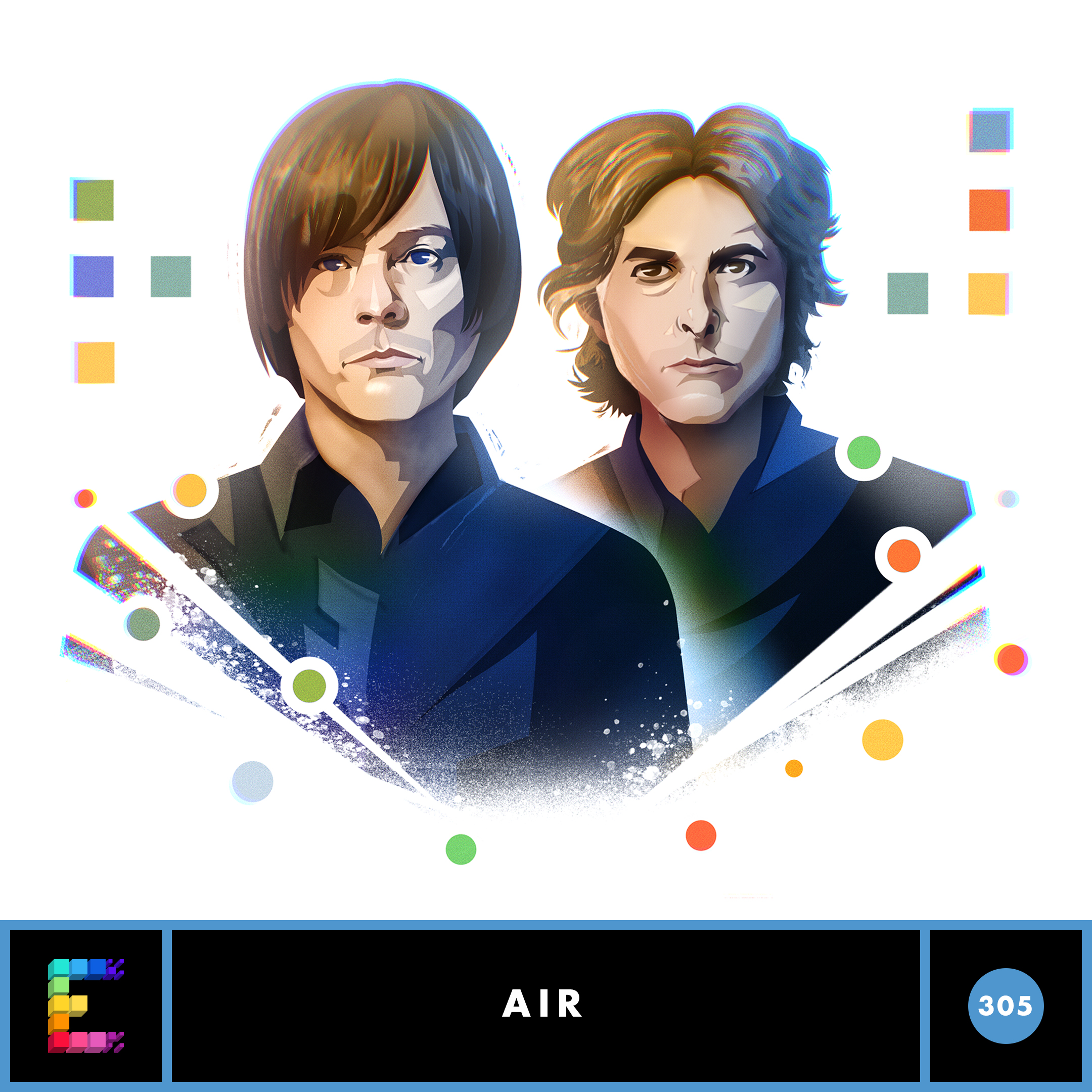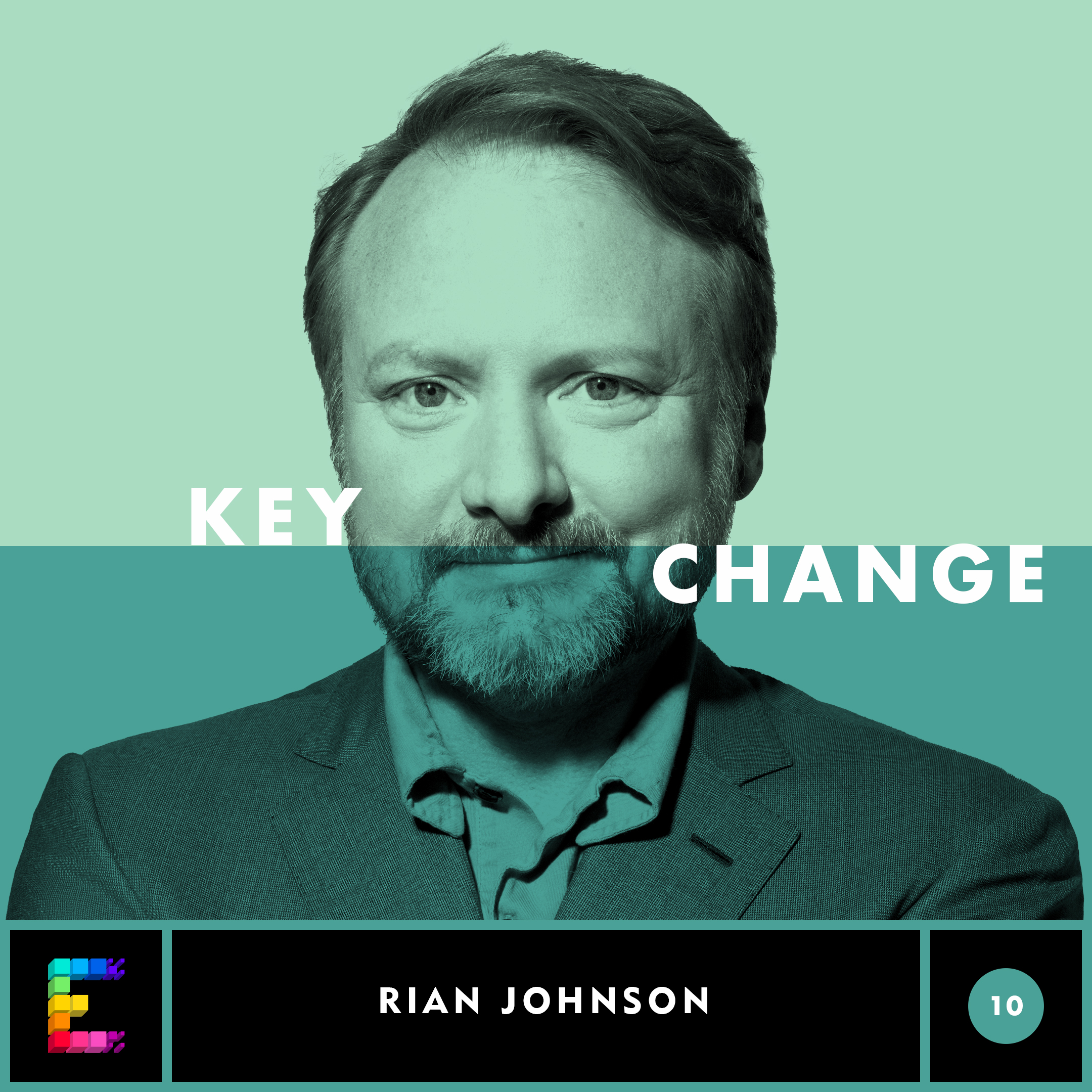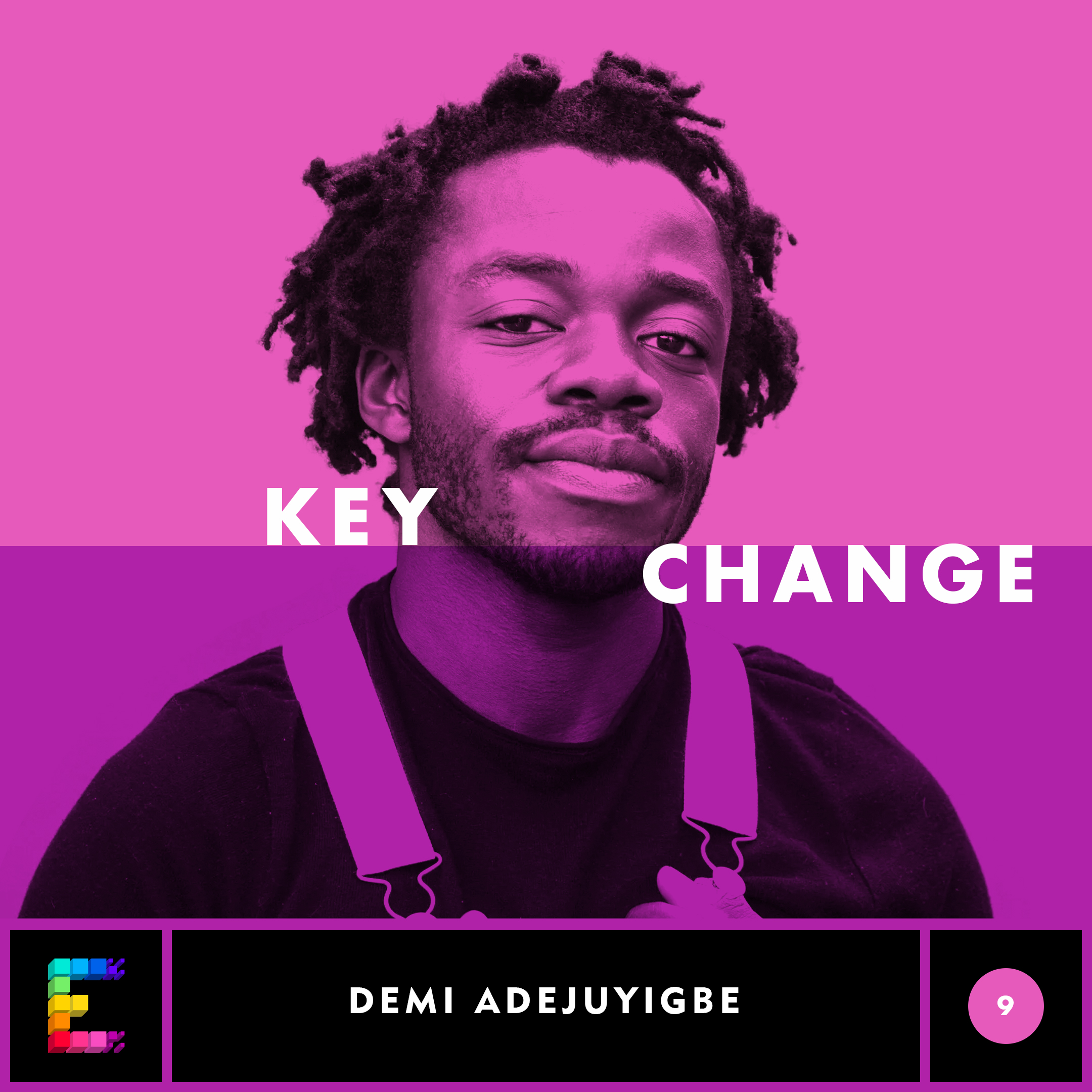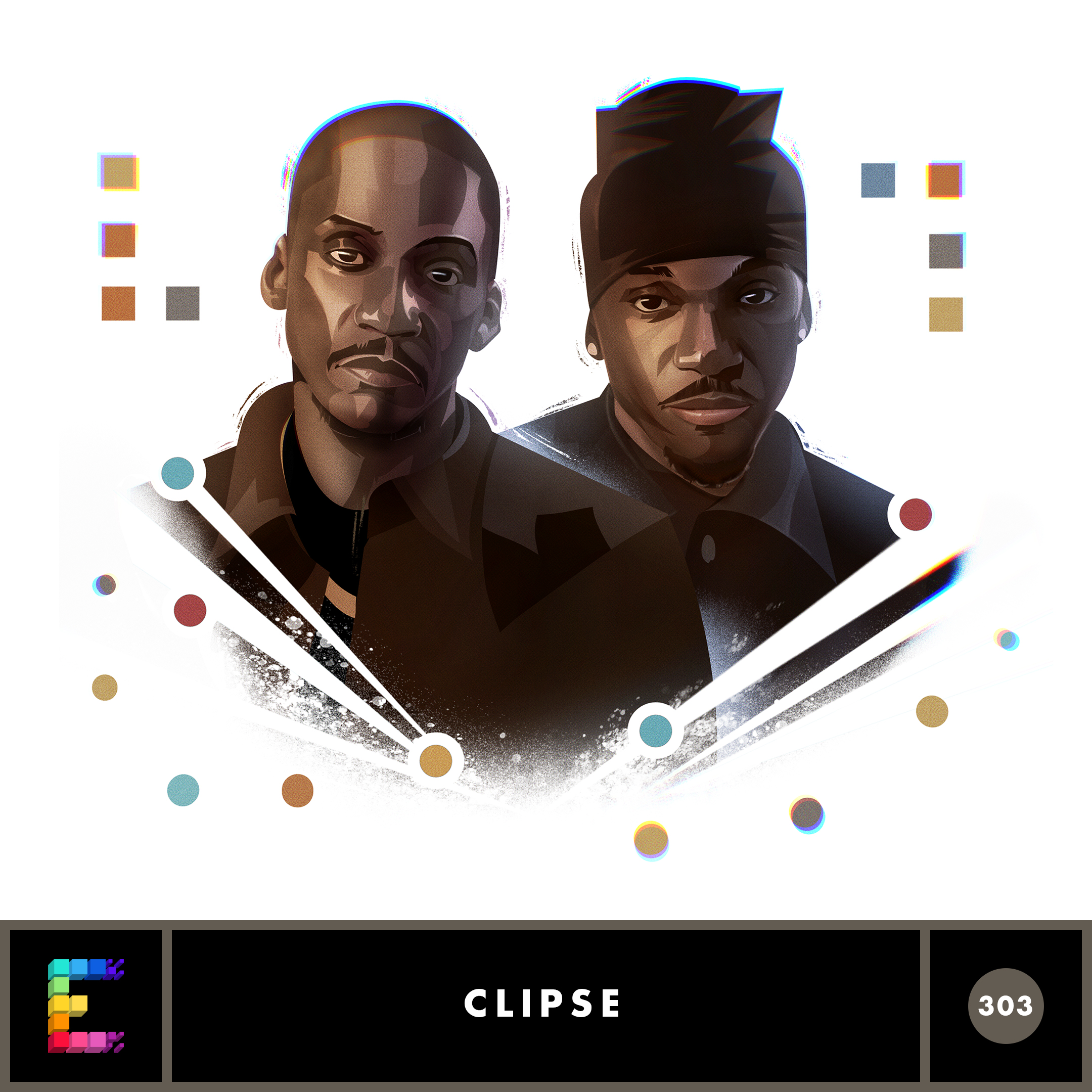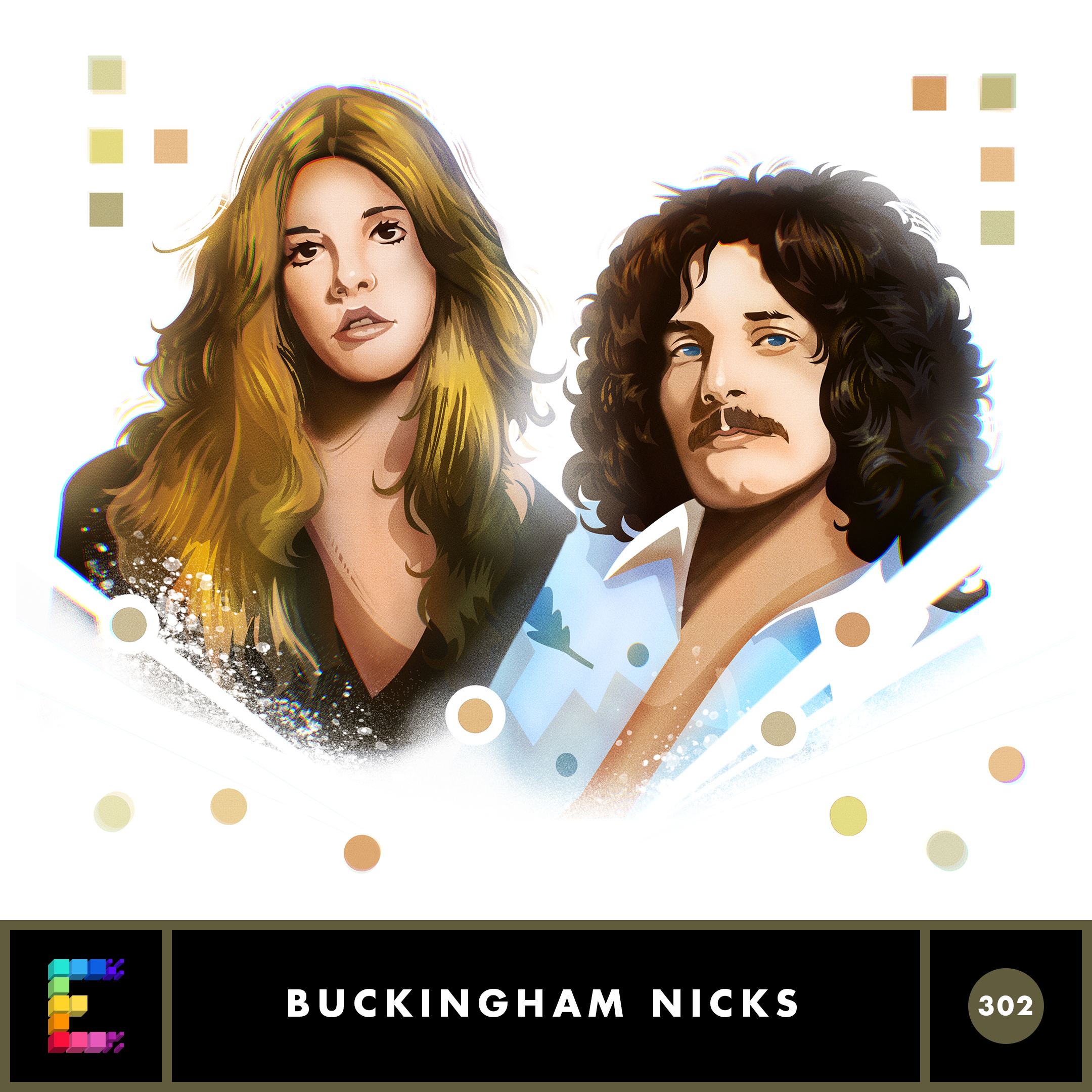Key Change: Jia Tolentino on "I Love You Always Forever"
My guest today is Jia Tolentino. Jia is the author of the essay collection Trick Mirror, which was named one of the best books of 2019 by The New York Times Book Review, NPR, The Paris Review, and more. She won a National Magazine Award for her work at the New Yorker, where she’s been a staff writer since 2016. Her writing covers so many different topics, from Roe V. Wade to the internet to pop culture and music. And today, we’re going to talk about the 1996 pop hit “I Love You Always Forever” by Donna Lewis.
For more, visit songexploder.net/jia-tolentino.
Press play and read along
Transcript
Speaker 1 You're listening to Song Exploder, where musicians take apart their songs and piece by piece tell the story of how they were made. I'm Rishikesh, Hirway.
Speaker 1 There's nothing like knowing someone's in your corner, especially in the moments that really matter. That's why ATT has connectivity that you can depend on, or they'll proactively make it right.
Speaker 1
That's the ATT Guarantee. Terms and conditions apply.
Visit att.com/slash guarantee to learn more. ATT, connecting changes everything.
Speaker 1 Thanks to Indeed for supporting Song Exploder. If you need to hire somebody for your business and you have to do it quickly, Indeed is all you need.
Speaker 1 With Indeed's sponsored jobs feature, your post jumps to the top of the page for relevant candidates so you can reach the people you want faster. There's no need to wait any longer.
Speaker 1 Speed up your hiring right now with Indeed. And Song Exploder listeners will get a $75 sponsored job credit to get your jobs more visibility at indeed.com/slash SongExploder.
Speaker 1 Again, Again, that's indeed.com slash song exploder. Terms and conditions apply.
Speaker 2 Hiring?
Speaker 1 Indeed is all you need.
Speaker 1 This is Key Change, where I talk to fascinating people about the music that changed their lives. My guest today is Gia Talentino.
Speaker 1 Gia is the author of the essay collection Trick Mirror, which was named one of the best books of 2019 by the New York Times Book Review, NPR, the Paris Review, and more.
Speaker 1 She won a National Magazine Award for her work at the New Yorker, where she's been a staff writer since since 2016. Her writing covers so many different topics from Roe v.
Speaker 1
Wade to the internet to pop culture and music. And today we're going to talk about the 1996 pop hit, I Love You Always Forever by Donna Lewis.
Gia, thanks so much for being here.
Speaker 2 Hello.
Speaker 1 Do you remember the first time you ever heard I Love You Always Forever?
Speaker 2 Yeah, I heard it, I think I was in the third row of a minivan. I was seven years old and I grew up in Houston and there was a lot of just driving, a lot of just being put in the back of the car.
Speaker 2 And I remember it was totally dark and I think I was being ferried with cousins or like the family friends that are called cousins. And I remember I heard the song.
Speaker 2 And you know, like that thing where you hear a song that is like enormous and it's the first time you've heard it and you have no context, but you like get that feeling.
Speaker 2 I think that was the first time I had ever had it. Like, and I love that feeling, like when you're you're just like, who is this? What is this? What is this thing? You know? Yeah.
Speaker 2
And just to me, like, the song sounded so platonically perfect in every way. And it gripped me so hard.
I love you always forever near and far. We'll sit together everywhere.
I will be here.
Speaker 2 It's so good.
Speaker 2
And I was just like, wow, like, like it felt like the curtains were parting into an entire world of adult music. And this was like my on-ramp to it.
Yeah.
Speaker 2 I think it was the first song that wasn't vaguely child coded, you know, even though like it to some extent, like all music that sounds like this is, like, I realize this now that I have a five-year-old and I'm like, oh, okay.
Speaker 2
So much girly pop is really for children in a great way, you know, like she loves Addison Ray, whatever. And so do I.
But yeah, I just remember being like, this is perfect. This is like
Speaker 2 the heavenly spheres, some sort of like sacred geometry is just unfolding in front of me.
Speaker 2 And I, and I'm, and I remember just like listening in the backseat of the car being like, wow, this is what it's going to be like to be an adult and be in love and, you know, something like that.
Speaker 2 It was a really profound experience.
Speaker 1 When you were a kid, was the radio basically how you found new music?
Speaker 2 You know, it's funny that like a lot of my early experiences of like independent music discovery was like one of my parents needing to buy something at like Best Buy.
Speaker 2 And I guess seven is around the time that I would have been allowed to leave their side and go to the CD rack and do the thing, you know, where it was like the big console where you could listen to like one minute previews of songs.
Speaker 2 Yeah. I started getting into like Jewel and Mariah Carey and Spice Girls, I think was around then also.
Speaker 2 And so much of it came from being sort of benignly neglected at big box stores and like listening to CD samples.
Speaker 1 I feel like that's young. Seven years old is young to be even thinking to find music on your own.
Speaker 2
I was in third grade. So I was like a little older coded and I really liked being on my own.
And I did do everything on my own as soon as I possibly could.
Speaker 2 I was a girly girl and music hit me really hard as a child, the same way that it hits me really hard right now.
Speaker 2 And I wanted it to myself and to be able to decide and to have like an independent solo experience of it.
Speaker 1 What do you think it was about the song that you were connecting to?
Speaker 2 I had this moment. I was watching the Quaron Little Princess movie with my older daughter a month ago, maybe.
Speaker 2
And She had her first grown-up cry. There's this climactic scene at the end.
And
Speaker 2
I was crying and my five-year-old was crying. And she was like shocked by the nature of this cry.
Like she was like, but I feel happy. And she was giggling.
She was also really crying.
Speaker 2 And she was experiencing what it was like to have an overpowering emotional experience that had nothing to do with something in her own life, kind of.
Speaker 2 I think this song was kind of like that. Like it was roughly equivalent to that.
Speaker 2 It was different in that like
Speaker 2 music that I would have been into up till that point. would have had like a really specific narrative and characters.
Speaker 2
You know, I loved like the song from Pocahontas, but that's because I loved the story and what it looked like. But this was an abstraction.
It was this pure shot of like joy and ecstatic adoration.
Speaker 2 I mean, the lyrics are totally abstract. The nature of the song itself, it's really like stripped down to this extremely clear.
Speaker 2 And so I think, yeah, like it was the first time that it, maybe I had been moved so strongly by something that was as simple and the good kind of formulaic, where it's just a pure scaffolding for you to hang all of your shit on the way that pop music is.
Speaker 2 Like this song was, it was so purely that.
Speaker 1
When we were emailing, you said that I Love You Always Forever helped you understand what pop music is and what pop music should be. And I'm curious about that.
What do you think pop music should be?
Speaker 2 So there's like a kind of song that sounds like this, like
Speaker 2 Mario Kart, Rainbow Road, pure dopamine, like, you know, angels opening their pink wings, sunlight, like all of the chemicals in your body just coursing and late afternoon and like a car driving as fast as it can, like pure sugar, cotton candy, I love you, you love me, we're going to be in love forever.
Speaker 2 Like it's this perpetually suspended present of pink fluffy ecstasy.
Speaker 2 I mean, pop music contains so much more than that, but this kind, this lane of it, where it was like, the song is going to summon this like feeling of the purest expansiveness
Speaker 2 from an extremely simple pattern that's so legible that a child can understand that it's about the happiest you've ever been or could be somehow. And it has something to do with loving somebody.
Speaker 2 There's maybe something about this kind of music and that it's just like direct to your body that just overrides all of the parts of me that are normally thinking.
Speaker 2 And yeah, it's like that specific lineage that I think this song was my first experience of.
Speaker 1 And so then did you specifically try and seek out other music that would give you that feeling?
Speaker 2 Well, I think what I realized that I could seek out in music and what I still seek out in music is that sense of like, I can't think about anything else but this song and this like instant, all-encompassing transportation and like miniature surrender to a three-minute thing.
Speaker 2
There were Mariah songs that would do it for me and like Whitney songs. And yeah, I think I realized like music could do this.
Music could make me feel like this.
Speaker 2 I can summon this feeling on demand or I can be surprised by this feeling. And so chasing that feeling is certainly like a tendency within me that has driven a lot of my life.
Speaker 2 I was a festival rat for a decade plus.
Speaker 2 You know, I was like in starting as like a teenager, I was just always like pressed up against the front of the speakers, actively losing my hearing, like wanting to leave the venue totally emptied out with my ears ringing.
Speaker 2 I wanted that override.
Speaker 2 Like, yeah, like almost like a shortcut to this thing that I feel like I chase in a lot of ways, but this was the quickest and like in a way, the most transcendent way of getting it.
Speaker 2 These have in many ways been the purest moments of my entire life, really. And I can't remember one of them before this.
Speaker 1 My conversation with Gia Talentino continues after this.
Speaker 1 Staying connected matters, whether you're checking in with your parents or roasting your friends in the group chat, just letting the people you care about know that you're there is important.
Speaker 1 And with AT ⁇ T, you're backed by a network that comes through for you. If there's a network outage, they'll proactively make it right with a credit for a full day of service.
Speaker 1
That's the AT ⁇ T guarantee. AT ⁇ T, connecting, changes everything.
Terms and conditions apply.
Speaker 1 Credit for fiber downtime lasting 20 minutes or more, or for wireless downtime lasting 60 minutes or more caused by a single incident impacting 10 or more towers.
Speaker 1
You must be connected to the impacted tower at onset of outage. Restrictions and exclusions apply.
See att.com slash guarantee for full details.
Speaker 1 I'm pretty active and I eat pretty well, so I've been operating under the idea that I'm basically healthy.
Speaker 1 But thanks to Function Health, whose sponsor Song Exploder, I found out that actually a handful of biomarkers around my heart health are below what's considered normal.
Speaker 1 And with my family history and genetics, I really have to watch out for that.
Speaker 1 And I wouldn't have known about this if it weren't for Function, which is a health platform that gives you access and insights into all kinds of information about what's really happening inside your own body.
Speaker 1 They have over 100 tests that are included in your Function Health membership. So you can take proactive steps to learn more about specific areas of your own health.
Speaker 1 There's this saying, that which can be measured can be improved. And now that I can measure these biomarkers, I can improve them.
Speaker 1 So learn more and join by using the Song Exploder link at functionhealth.com slash song exploder. The first thousand people to sign up will get $100 credit toward their membership.
Speaker 1 That's functionhealth.com slash song exploder. Or use the code songexploder100 when you sign up to own your health.
Speaker 1 Do you remember the first time that you wanted to write about music?
Speaker 2 I guess this wasn't really writing about music, but it is nice how kind of explicit the childhood of the sort of 90s and teenagerhood of the 2000s made your relationship with music.
Speaker 2 And I was on live journal as a teen and like, there was like, I think a slot to put whatever music you were listening to. And then there was MySpace.
Speaker 2 And, you know, like so much of it was like, really, you were waving this song like a flag. And that was the currency and the language.
Speaker 2 And then, I think, for like a full year, when I was in grad school in Michigan in 2012, which is when I started like writing on the internet in general, like, I was blogging for the hairpin for no money.
Speaker 2
And so, like, my friends were music blogging. And because I was writing and could write quickly and easily, they would have me write for these music blogs.
Yeah.
Speaker 2 And then when I got hired at the hairpin by my now best friend, Emma Carmichael, it was just like the two of us running this website and we had to just like fill space.
Speaker 2 Like we, I think it was like nine posts a day just between the two of us. And both of us love music.
Speaker 2 And so we would just kind of just keep putting stuff on the website, like we would write about music almost every day.
Speaker 2 And it seemed kind of like a natural extension of anything that I'd been thinking or writing before, like even as a kid. Like I think I was
Speaker 2 always trying to sort of like have and share transcendent experiences with music.
Speaker 1 Nowadays, when you write about pop music, how much is your perspective still informed by the experience you had, you know, in that minivan and the feelings you had when you were seven years old?
Speaker 1 Like, is there a standard that other music is being held to that was established by that experience?
Speaker 2 This is interesting. I've never thought about this before, but maybe it's why bad pop music is,
Speaker 2 you know, it's offensive in a way that other music that I don't like is not, because it's like a perversion of this thing.
Speaker 2 It's stevia and I want sugar, you know, and I find things like stevia like quite offensive to my physical form.
Speaker 2 Like I, not to offend anyone, that might need to eat stevia for dietary purposes or whatever, but I find it unbelievably offensive.
Speaker 2 when it's the worst part of pop music without the thing that animates and makes transcendent the good stuff, you know, which is like a kind of utter sincerity.
Speaker 2 It's sincerity and commitment and like real sweetness and real
Speaker 2
open-ended ecstasy. And when something is borrowing all of that for more likely product placement in an old Navy commercial or whatever, it like, it hurts.
Like it hurts me.
Speaker 2 Like the artificiality of pop, when it's magnificent and when it is soul crushing, I find that very interesting as, and like so much of that is just how it hits you in your body.
Speaker 1 So you've name-checked Donna Lewis, obviously, but Whitney Houston, Mariah Carey. So many of the paradigms of like the perfect pop song that you've mentioned, they're all sung by women.
Speaker 1 And I was wondering if, if you think that that's part of what's necessary in order to achieve the feeling that you had, or if it just happens to have worked out that way.
Speaker 2
No, this is a me thing. You know, it's like women are angels.
You know what I mean?
Speaker 2 Like, I prefer a female subjectivity, you know, I just do. There's something about the female subject position that is negotiating around so much more to begin with.
Speaker 2 You know, disempowerment, submission, receptivity, that them singing pure sweetness hits harder for me and means more to me.
Speaker 2 And, you know, it's also like the baptism into pink fluffy clouds, angel wings parting, rainbows, and cotton candy, It's obviously not purely coded for girls, but it basically is.
Speaker 2 Like there's a reason that like gay men who also court this feeling and love, like also prefer the female subject position in, you know, in music and art in a lot of ways, right?
Speaker 2
Like maybe there are exceptions like. Justin Bieber and Sorry, right? But this is the girl zone.
It belongs to girls. It always will belong to girls.
And men can listen to it.
Speaker 2
They can ghostwrite the songs. They can produce produce the songs.
Max Martin did Teenage Dream, right? But they can't do it. It's for girls and it's by girls.
Speaker 2 And there's like a fourth grade part of me that loves that. What I think I like about this kind of music is it's kind of pre-lapsarian.
Speaker 2 It is the Garden of Eden and it's a sort of willful summoning of a type of feeling. when anything is possible and nothing will ever go wrong.
Speaker 2 And like as a kid, you don't have any thoughts about that other than the feeling itself. Like you're just like, wow, what an incredible feeling that this song can summon.
Speaker 2 And that like I feel on my own anyway, probably, you know, about just being alive. And I guess slowly in time,
Speaker 2 as one comes to realize in a personal and then structural sense that the world is not like that, these songs still pretend that it is kind of.
Speaker 1 The last thing I wanted to ask you about was your daughter, who you said she's five.
Speaker 1 I was wondering, how much do you feel like you can play a hand in shaping her musical taste?
Speaker 1 Or how much is she like you when you were younger and fiercely and independently wants to make her own choices about music discovery? Like, have you played her, I Love You Always Forever?
Speaker 2
Yes, I did actually. And I was like, did you like it? And she was like, yeah, I liked it.
And then she was like, can you put on Pink Pony Club or whatever? You know, it's so funny.
Speaker 2 When she was like an infant, I don't know whether this was projection, but it did seem to me that I could soothe her by by putting on cotton candy songs. Like I did play Teenage Dream for her a lot.
Speaker 2
And they would soothe her, but maybe it was just because I got happier when I listened to them. And, you know, and I was holding her and then she would get soothed.
Like, I don't know.
Speaker 2 But it seemed for a while that she would really respond to them. I do remember Teenage Dream made her stop crying once.
Speaker 2 And now in the last year, it's like, yeah, you know, like, I don't know how many four-year-olds you have in your life right now, but it's like, they love Chapel Rone.
Speaker 2 Like they're obsessed with Chapel Rone.
Speaker 2
So she does like this kind of music already. She likes some Taylor Swift.
She likes the Taylor Swift songs that are made for children, like Shake It Off.
Speaker 2
And I can see her and she's a mini me in every way. Yeah.
And she loves music. You know, like she's, she's locked in.
She's really tapped into all this stuff.
Speaker 2 She asks to, if she's in a bad mood, I can like turn on a disco light and play.
Speaker 2 Run away with me,
Speaker 2 you know?
Speaker 2 And in a way, I'm like, oh, wow, you're just like me on someone's rooftop in Williamsburg, like, you know, in 2015 when the song came out, you know, it's funny to see it come together because I still like this music, too.
Speaker 2 Like I went to an Olivia Rodrigo show at MSG, like when Paloma was like three, and I was looking at all of the little preteen girls that were in their like first little halter tops and like first makeup and, you know, really trying to pretend they were teenagers.
Speaker 2 And I was like, wow, like, I'm pretty close to doing that with her, you know? Yeah.
Speaker 2 Yeah, I'll be kind of sad when our tastes diverge, but I kind of suspect we'll have a lot of, like, maybe she'll be like me and she'll still,
Speaker 2 she will want the sugary stuff forever.
Speaker 1 Thank you so much.
Speaker 2 Thank you for having me.
Speaker 1 Gia Talentino's best-selling book, Trick Mirror, is available everywhere, and you can find her writing at The New Yorker. Her website is gia.blog.
Speaker 1 Visit songexploder.net slash keychange for more keychange episodes and for a playlist with all the songs that have been discussed.
Speaker 1 This episode was produced by me and Mary Dolan with production assistance from Tiger Biscuit.
Speaker 1 Song Exploder is a proud member of Radiotopia from PRX, a network of independent, listener-supported, artist-owned podcasts. You can learn more about our shows at radiotopia.fm.
Speaker 1 If you'd like to hear more from me about what I'm watching and listening to and thinking about, you can subscribe to my newsletter on Substack. You can find a link to it on the Song Exploder website.
Speaker 1 You can also get a Song Exploder t-shirt at songexploder.net slash shirt i'm rishikesh your way thanks for listening
Speaker 1 radiotopia
Speaker 1 from p rx
Speaker 1 this episode of song exploder is brought to you by booking.com booking.ya From vacation rentals to hotels across the US, Booking.com has the ideal stay for anyone, even for those who might seem impossible to please.
Speaker 1 Whether you're booking for yourself, your partner, your dad, your group of friends, whoever it is, you can find exactly what you're booking for at booking.com. Booking.com, booking.yeah.
Speaker 1 Book today on the site or in the app.
Speaker 1 This episode is brought to you by the new film Splitsville. It's a comedy about relationships and the messiness that comes with them, and it stars Dakota Johnson and Adria Arhona.
Speaker 1 It premiered at Cann, where it got rave reviews, and it's distributed by Neon. And for me, that's huge because I trust Neon the way that I trust my favorite record labels.
Speaker 1 I will definitely check out anything that they put their name on. So I'm looking forward to seeing this.
Speaker 1 Splitsville is already playing now in select theaters, and it'll be playing everywhere on September 5th.
